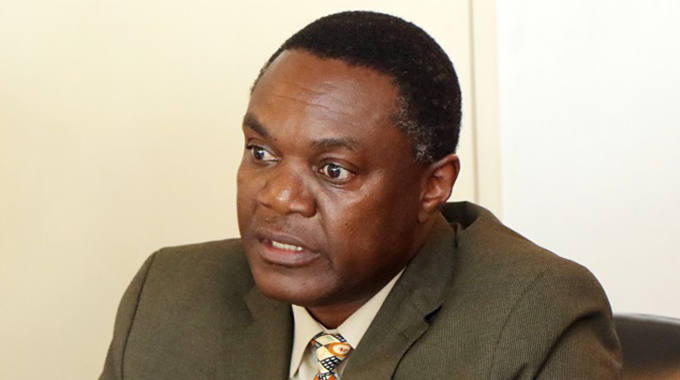Former gardener turns to chalkboard

Hazel Marimbiza
After being looked down on when he was a gardener, eight years on, Mr Wayne Ncube is now a teacher by profession and is also empowering Nkayi youths to utilise their skills through his vocational centre, Isibaya Sabatsha Nkayi Youth Development Trust (ISNYDT).
ISNYDT has trained 20 Nkayi youths aged between 15 and 35 years in skills such as carpentry, building, agriculture, welding, catering and decoration.
Mr Ncube (28) from Luveve suburb in Bulawayo, said ISNYDT’s main purpose is to capacitate youths through vocational skills.
“I want to make a change among Nkayi youths because most of them are always idle. ISNYDT also helps curb crime as some youths are bound to engage in criminal activities when unoccupied,” said Mr Ncube.
“This organisation is unique because it also looks at the Nkayi youth problems, for instance the youth here are hard workers who are used as cheap labour in mining and farming so we aim to expose them to opportunities of registering their own companies.”
Much attention is being given to youth unemployment in the country. As high unemployment rates sweep across the nation, it seems appropriate to assess the role of youth training centres.
Research has shown that vocational training has a positive impact on a person’s employment opportunities. Acquiring new skills and competencies can extend options for professional advancement and offer additional career choices. There are also indications that vocational training may contribute to reducing unemployment and protecting people from becoming unemployed in the first place.
Vocational training has also been shown to help individuals be motivated and positively impact their attitude, self-esteem, and self-confidence especially among the unemployed. Furthermore, additional training is also good for society as a whole as it is linked to increased membership of voluntary organisations taking part in the civil society.
Many educators and youth leaders seeking to solve the problems that youth face typically turn to the educational system. Unfortunately, schools have limited opportunities for the youth voice and empowerment as some youths are not academically gifted while others never get a shot at a decent education.
For Mr Ncube, his sad upbringing also motivated him to offer vocational skills to other less privileged youths. He believes youths face similar challenges but he doesn’t wish for anyone to live his experiences, which he was not shy to share.
His mother left him when he was three months old. His father then took him to Thembiso Children’s Home in Bulawayo. For about eight years, he stayed at the home until his father came back for him.
At the age of 20, he found himself in a difficult situation. He could not afford to get funds for an accounting course which he was pursuing at Bulawayo Polytechnic. His father could not help him as he was going through a rough patch. He had just lost two houses. The severity of these circumstances led the 20-year-old Wayne to start job hunting. He eventually got a job as a gardener.
“At that time I was earning $210 and the fees at Poly was $240 per term. It was hard because I had started renting since I was evicted from the house by the new owners. Rent was $50. Besides rent I needed food and transport to work. Balancing the finances was always a nightmare for me,” said Mr Ncube.
He worked as a gardener for three years. During his first days as a gardener, he was humiliated.
“I did a lot — I would hide whenever I saw familiar faces especially the ladies. This job was like an insult to my inner being who demanded more as I had 5 O-levels — but could not make ends meet. Most of my friends didn’t know I was a gardener. Honestly, I had tapped into living a fake life. It was a learning phase and a horrible experience at the same time,” he said.
Mr Ncube later left the job to work for his pastor. He didn’t mind working for his pastor but he often looked down on himself when he was among his peers.
“I only had one pink shirt and a pair of black trousers that I’d wear to every Sunday service. It was such a horrible experience for me. I constantly compared myself to other young people who had clothes to change every Sunday. I wanted to go to church but this almost made me quit especially when I heard people talking about it,” he said.
Mr Ncube would be offended whenever people gossiped about him but he drew closer to his pastor who encouraged him to always look to Jesus.
The turning point in his life was when he applied to train as a teacher at the United College of Education. After completing his course, he got a temporary teaching job at Dimpamiwa Primary School in Nkayi.
“It was hard at first because I had never imagined myself being a teacher. Eventually, I fell in love with the job and ended up thinking that probably it’s my calling,” said Mr Ncube.
While teaching at Nkayi, he noticed a lot of drug abuse, violence and child marriages. All these pushed Mr Ncube to register his trust.
The trust is a youth development/empowerment initiative, which goes hand in hand with Government’s Vision 2030.
The Government has continuously urged young people to engage their community leaders to assist them in being part of development projects being rolled out in their communities.
Acting deputy director in the Ministry of Youth, Sports, Arts and Recreation Mr Leonard Mukoko said the Government was youth friendly and wanted to nurture young people so that they can have a better future.
He urged youths to attain skills at vocational training centres.
“Youths must attain skills from vocational training centres. If you are not academically gifted you can use vocational skills. Even if you are educated, why not add to your abilities so that you can be marketable?” said Mr Mukoko.
Last year, former Zanu-PF National Secretary for the Youth League Cde Pupurai Togarepi implored Government to expedite the establishment of more vocational training centres saying these would help empower unemployed youths to acquire technical skills in order for them to earn a decent living.
“Youths are the vanguard of national economic development. For a very long time we have been proffering survival skills to them (youths) without formal employment. The new and upgraded centres should continue to benefit youthful school-leavers. Mr Ncube commended the support he has received from the Ministry of Youth.
“Although we experience challenges such as acquiring funds, we are grateful for guidance from several departments like the Ministry of Youth. Also, the fact that we have youths who have come to volunteer to work with us has greatly improved our services,” said Mr Ncube.








Comments